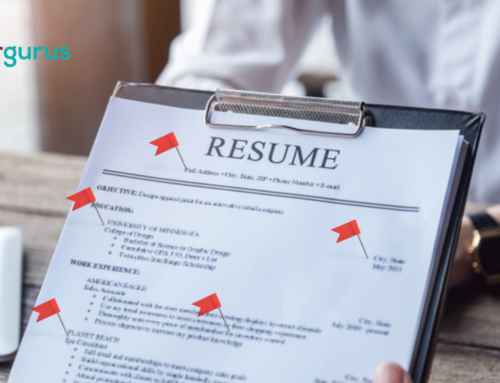Recently Updated on 25 March 2020.
Anxiety around COVID-19 is now surging globally and as Australians rush to supermarkets panic buying toilet paper, we thought it was time to issue an advisory guide to help employers understand and navigate what are appropriate measures to take in the wake of a global pandemic.
Firstly, what is a pandemic?
Declaring a pandemic has nothing to do with changes to the characteristics of a disease, but is instead associated with concerns over its geographic spread. According to the World Health Organization, a pandemic is declared when a new disease for which people do not have immunity spreads around the world beyond expectations.
So, what this means is that we should all continue to listen to the advice of health organisations, remain calm and not instigate draconian measures without cause. Good planning and communication are key here if we are going to keep the cogs of the global economy turning. If everyone panics and we bring business to a standstill before it is required then many people stand to suffer both economically and emotionally.
What can I do to prepare my business?
We recommend creating a clear plan for what you are going to do to prevent the spread of infection through a really great Infection Prevention Control Policy as well as developing a Contingency Plan so that you are able to continue to operate should you have infections amongst your team and any forced shutdowns or closures need to be implemented.
Steps may include any of the following:
- Reviewing and circulating your Infection Prevention & Control Policy to all your employees and ensuring you emphasise the importance of staying at home and taking sick leave even if employees have mild symptoms.
- Extra cleaning and disinfecting of your offices whilst this pandemic is ongoing.
- Extra hand sanitiser or soap is made available for employees (if possible).
- Promoting regular handwashing for employees, contractors, clients and visitors.
- Removing tea towels or hand towels from all areas of your place of business and replace with disposable towels.
- Ensuring you have a Working from Home policy and are getting ready to operate your business with employees working from home.
- Reviewing your equipment and systems to be able to facilitate working from home for as many employees as possible.
- Assessing which roles could and could not be performed from home.
- Creating an A team and a B team and alternating these teams with one working in the office or your place of business and the other working from home to reduce infection spread, allowing your business to continue to operate. You should also test this contingency plan over the coming weeks, so you are ready and have ironed out any glitches.
- Appoint a Risk Management committee to stay across all the information that can be prepared to activate your plan. Information is changing every day and you need a team ready to act.
- Implementing a blanket business travel ban within your business (including international and domestic)
- Consider asking employees to cancel any international travel plans or planned annual leave until we know whether the pandemic is going to be controlled (people may need to save up leave for a later date if a forced shutdown is instigated).
- Preparing for enforced shutdowns (what you will do, how will you continue to operate and whether employees will be paid or unpaid, how you would continue to function). If you have annual leave accruals whether you could use these to continue to pay your employees over a forced shut down.
- Looking at how you could continue to provide services to your clients even if you are shutdown. For example, online classes for gyms; online lessons for child care or; online meetings with clients rather than face to face. You may want to consider whether you could sell your products online rather than instore if you are a retail outlet. The more prepared you are, the better equipped you are going to be.
What to do if you have a worker that is infected.
Obviously, we spend an enormous amount of our lives at work, and we come into regular contact with co-workers, customers as well as contractors. Therefore, if employers have a suspected or confirmed case they should:
- Provide timely information to all your employees on latest developments.
- Reassure employees and relevant persons, e.g. customers, of the measures being taken to ensure their well-being within the workplace.
- Show care and concern to persons who are either confirmed or suspected of infection.
- Coordinate with suppliers or contractors to manage their own employees, if applicable.
- It should be noted that a person who has fever or symptoms like coughing and breathlessness may not be infected with COVID-19. However, if they do have these symptoms, they should be advised to consult a doctor as soon as possible.
- If the doctor has reason to suspect COVID-19 infection, the person will be referred for further tests and deemed to be a suspect case.
- Follow the advice of the health department if you need to report your case
Health officials have warned against employers simply sending all their workers to hospitals to be tested for the COVID-19. Due to the strain this may place on medical facilities, it is recommended that workers who are suspected of having the virus are sent to their GP or call the COVID-19 hotline. There, the doctor or specialist on the phone, will assess whether they need to be sent to hospital. Workers should only be sent to hospital if it is a medical emergency. This will ensure our health system can focus its resources on those who need treatment. Not people who simply think they may need to be tested.
In Victoria and many other States testing centres have now been set up at Hospitals, but ONLY people who believe they may have Coronavirus should go to one of these testing centres to be tested. In terms of isolation protocols the Australian Government Department of Health has provided the following guidelines for those who should be isolated and tested. This guide states:
That anyone who has travelled from overseas as at 12 midnight 15 March 2020, or been in close contact with a confirmed case of coronavirus, special restrictions apply. This information sheet should be read in conjunction with the ‘What you need to know’ and ‘Isolation guidance’ information sheets at www.health.gov.au/covid19-resources
Who needs to isolate?
To help limit the spread of coronavirus, you must isolate yourself in the following circumstances:
- If you have recently arrived from overseas from midnight Sunday night 15 March 2020 you must isolate yourself for 14 days please note their are state penalties that can be imposed if you do not comply.
- If you have been in close contact with a proven case of coronavirus, you must isolate yourself for 14 days from the date of last contact with the confirmed case.
For further information click on the below links =>
A suspect case
If there is a suspect case at work, employers should immediately identify everyone who may have recently come into close physical contact.
Employers should then advise all affected employees to:
- Monitor their health, including doing temperature checks twice daily
- Adopt good personal hygiene
- See a doctor immediately if they are unwell
- Inform supervisors and/or HR immediately, and stay at home on sick leave even if the symptoms are mild
Once notified of a confirmed case, employers should adopt precautionary measures:
- Immediately vacate and cordon-off the immediate section of the workplace premises where the confirmed case worked
- Carry out a thorough cleaning and disinfecting of that section, according to the department of health guidelines
- If required effectively shut down your operations and require that all employees self-isolate
Frequently asked questions?

What happens if employees have no personal leave accrued?
In these circumstances, employers will need to decide how they want to manage these scenarios. If applicable employers may allow employees to access annual leave or long service leave. If this is not possible then unpaid leave will need to be granted.
The government has just announced access to additional payments for casual workers.
What happens if an employee needs to direct employees to stay at home?
Where an employer directs a full-time or part-time employee to stay home in line with advice, for example in line with the Australian Government’s health and quarantine advice, and the employee is not sick with coronavirus, the employee should ordinarily be paid while the direction applies.
However, if an employee cannot work because they are subject to a government order requiring them to self-quarantine, the employee is not ordinarily entitled to be paid (unless they use leave entitlements). In this case, their inability to work is because of a government order, not because of their employer.
If an employee cannot work due to travel restrictions (for example, they are stuck overseas), they are not entitled to be paid (unless they use paid leave entitlements).
Employers should consider whether their obligations are impacted by any applicable enterprise agreement, award, employees’ employment contracts or workplace policies, which may be more generous.
What happens if an employee decides to go on annual leave and then needs to be isolated on their return. Can they access paid sick leave for the 14-day isolation period?
The advice around these scenarios is changing daily, employers should continue to monitor the advice from Fair Work and manage these situations on a case by case basis. It is recommended that employers ask employees to consider cancelling their leave wherever possible should they need to access this in Forced Shutdown situations.
Can employers put a blanket stop on employees taking annual or long service leave?
No this would be unlawful, especially if employees have already paid for holidays and they are in Australia. You could ask people to consider cancelling annual leave as a precautionary measure, but it is the employee’s right to access their leave entitlements.
What if an employee wants to stay home as a precaution or chooses to self-isolate what are my obligations?
If an employee wants to stay at home as a precaution against being exposed, or they decide to self-isolate for whatever reason they would need to make a request to work from home or to access paid or unpaid leave. These applications would be subject to the normal leave application process within the workplace.
Employees are encouraged to discuss their level of risk of contracting coronavirus with their doctor, workplace health and safety representative or the appropriate State or Territory workplace health and safety body. Employers may ask any employees who are high risk to self-disclose and you may ask these employees to work from home if possible.
What happens if an employer is required to implement a forced shut down would this be paid or unpaid? Extract from Fair Work Website for full information click here. Please note that this information is changing daily.
For information on the quarantine requirements you can visit the Department of Health’s website.
Under work health and safety laws, employers are required to ensure the health and safety of their workers and others at the workplace. Workers also have responsibilities under those laws.
Employers and employees are encouraged to work together to find appropriate solutions that suit the needs of individual workplaces and staff. Employees who are stood down without pay remain employed for the period of the stand down.
Under the Fair Work Act, an employee can only be stood down without pay if they cannot be usefully employed because of a stoppage of work for any cause for which the employer cannot reasonably be held responsible.
Whether the option of standing down employees is available in circumstances relating to coronavirus is very fact dependent and an employer should exercise the option cautiously. The employer must be able to demonstrate that:
- there is a stoppage of work
- the employees to be stood down cannot be usefully employed (which is not limited to the work an employee usually performs)
- the cause of the stoppage must also be one that the employer cannot reasonably be held responsible for.
If an employer unlawfully stands down employees without pay, the employees will likely be able to recover unpaid wages.
Employers cannot generally stand down employees simply because of a deterioration of business conditions or because an employee has coronavirus.
Some examples of when employers may be able to stand down employees include:
- if there was an enforceable government direction requiring the business to close (which means there is no work at all for the employees to do, even from another location)
- if a large proportion of the workforce was required to self-quarantine with the result that the remaining employees/workforce cannot usefully be employed
- if there was a stoppage of work due to lack of supply for which the employer could not be held responsible.
If an employee is at risk of infection from Coronavirus (for example they recently travelled through a high risk country, or they have been in close contact with someone who has the virus) you could request that they receive a medical clearance before returning to work, or not to work during the risk period. Where an employer directs an employee not to work, the employee would ordinarily be entitled to be paid under that direction.
It is suggested that employers need to balance their legal obligations, including those relating to anti-discrimination.
Can I terminate employees who are ill or in isolation because of the pandemic?
No this would be considered discrimination. It is highly recommended that you seek advice before making any decisions to terminate people or make redundancies.
As the information and advice is changing daily you can also sign up to our HR out of the Box membership Club where we will be doing live Q & A’s weekly about topics like this and other pertinent HR matters. We have a 6 month FREE trial on offer or buy up-front and become a foundation member for just $165 for the whole year. To learn more click here. We are also going to be holding a free webinar around this topic and will post details soon.
So there you have it! Hopefully this advice helps employers navigate these crazy times ahead.
If you need more support managing COVID-19 in your business we have created a COVID-19 Employer Value Pack with 9 templates including an Employer Guide you can learn more here.
Disclaimer
The information in this publication is of a general nature and is not intended to address the circumstances of any particular individual or entity. Although we do endeavour to provide accurate and timely information, we do not guarantee that the information in this publication is accurate at the date it is received or that it will continue to be accurate in the future.
Continue Reading
Get a personal consultation.
Call us today at 1300 959 560.
Here in HR Gurus. We make HR simple because it should be.




